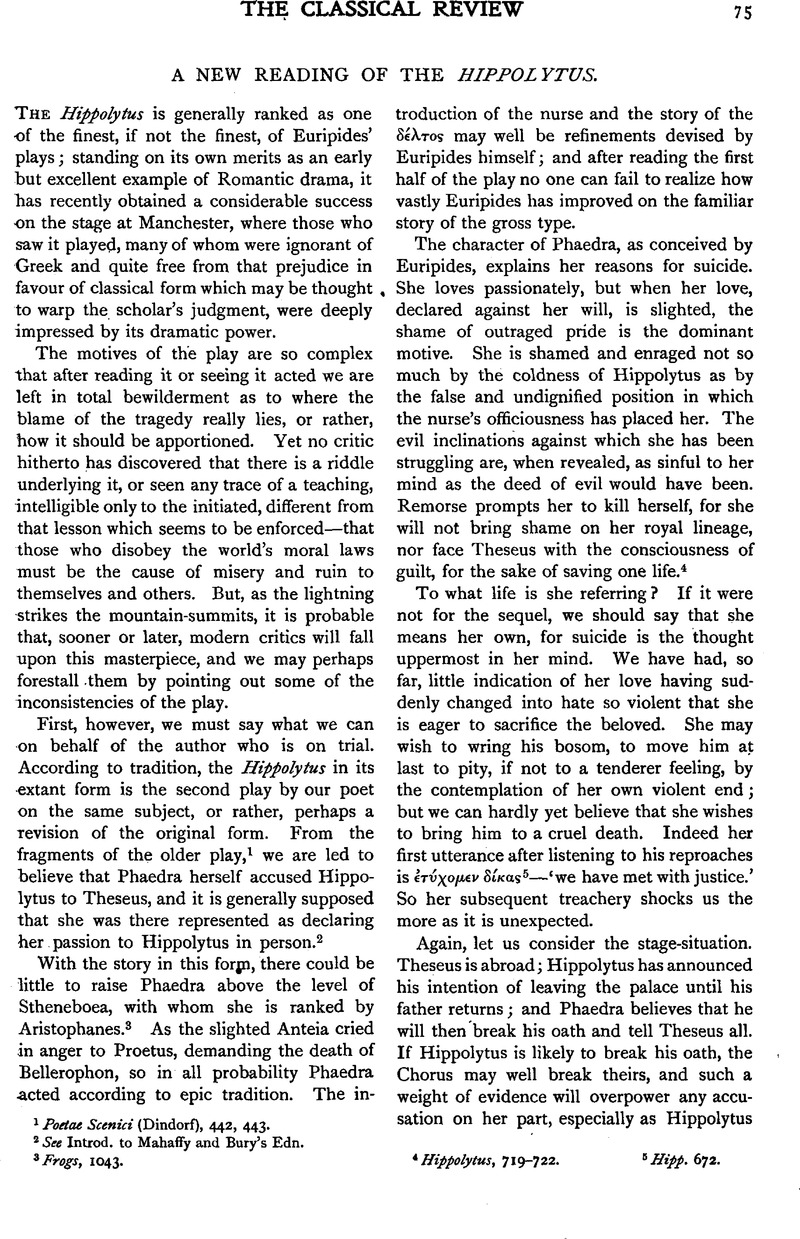No CrossRef data available.
Article contents
A New Reading of the Hippolytus
Published online by Cambridge University Press: 27 October 2009
Abstract

- Type
- Original Contributions
- Information
- Copyright
- Copyright © The Classical Association 1909
References
page 75 note 1 Poetae Scenici (Dindorf), 442, 443.
page 75 note 2 See Introd. to Mahaffy and Bury/s Edn.
page 75 note 3 Frogs, 1043.
page 75 note 4 Hippolytus, 719–722.
page 75 note 5 Hipp. 672.
page 76 note 1 Hipp. 728–731. Surely the ν⋯σ in which Hippolytus is to share, and so ‘learn to be temperate,’ is here love, not death; cf. infra 765, Ἀφροδ⋯τας ν⋯σἳ.
page 76 note 2 Hipp. 689–690.
page 76 note 3 Cf. Euripides the Rationalist, p. 160. ‘… the story is contained solely in the action proper, without the prologue and finale, which are not the story but comments on the story by “gods,” that is to say “liars.”’
page 76 note 4 Euripides the Rationalist, p. 67. ‘Experienced readers at Athens must have known that in Euripides what had been spoken from the machine was not to be taken seriously.…’


